News & Media
Unisa seminar explores the role of women in diplomacy
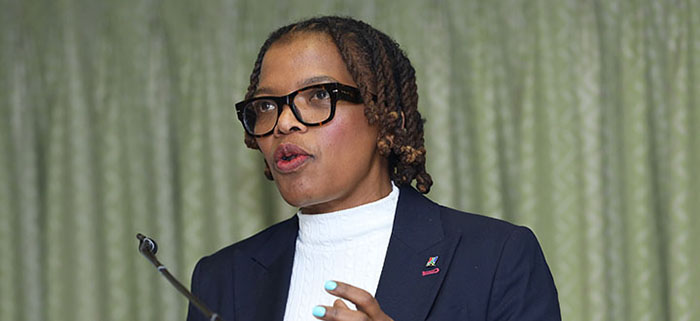
Zingiswa Losi, President of the Congress of South African Trade Unions
On Wednesday 6 August 2025, Unisa’s Department of Leadership and Transformation held a Women’s Day Seminar at its Muckleneuck Campus in Pretoria under the theme Women and Diplomacy: Women in South Africa’s Engagement with Fast-Changing Geopolitics. Taking place during Women’s Month, the seminar focused on the role of women in diplomacy as ambassadors, negotiators, analysts and policy influencers. This seminar is part of the university’s ongoing commitment to foster dialogue around gender, transformation and national development.
The seminar featured a diverse lineup of prominent speakers, including Dr Palesa Sekhejane, Deputy Executive Dean: Faculty of Natural Sciences, Walter Sisulu University; Zingiswa Losi, President of the Congress of South African Trade Unions; and Dr Angie Magabane, Director of Internationalisation and Partnerships at Unisa.
In her opening address, Dr Matsheliso Molapo, Acting Vice-Principal: Strategy, Risk and Advisory Services at Unisa, said that the seminar must not only concentrate on women’s past contributions to diplomacy, but also chart a more inclusive and gender-aware path forward in shaping national and continental futures.
Molapo stressed that although women are disproportionately affected by conflict, economic instability and social exclusion, they too often remain absent from the negotiating tables where decisions about futures are made.
Losi mentioned that discussions about women and diplomacy are happening at a time when the world is defined by wars, economic competitions, mounting authoritarianism and human rights being sidelined. She explained: "In all this, one truth remains: working class women suffer the most in all this crisis, yet they are the ones who are underrepresented in the decision-making spaces".
Furthermore, Losi stated that working-class women such as nurses, teachers, farm workers and domestic workers remain largely absent from the diplomatic space. "For diplomacy to be legitimate," she said, "it must be democratised and rooted in the people, it must reflect lived realities and be accountable to everyday communities and not to the state or the affluent."
Losi highlighted that gender issues are not prioritised and advanced; instead, they are treated as soft issues secondary to trade and security.
Sekhejane premised her speech on science diplomacy. She lamented the under-representation of women in science diplomacy, saying that only 30% of women are represented in the science field in Africa. She also pointed out that Africa is rendered unstable by factors such as floods, economic inequality, weak institutions, militarisation and ethnic tensions. "Thus," she continued, "such instability contributes to a high level of unemployment, which will disproportionately affect women. As a result, women will resort to informal trading to survive, but the truth is that even in informal trading, entrenched barriers impede women from trading freely. Education will also be affected by such instability, resulting in many girls dropping out and taking on family responsibilities."
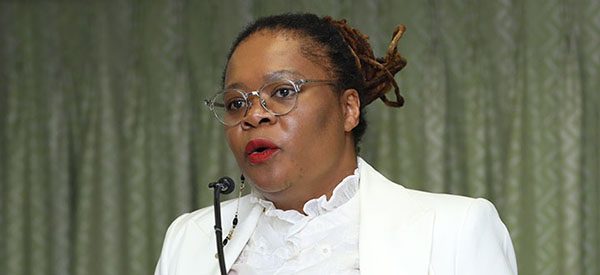
Dr Palesa Sekhejane, Deputy Executive Dean: Faculty of Natural Sciences, Walter Sisulu University
Magabane grounded her speech in internationalisation and decolonialisation, drawing on Samia Chasi and Savo Heleta, who defined the internationalisation of higher education as a "critical and comparative process of the study of the world and its complexities, past and present inequalities and injustices, and possibilities for a more equitable and just future for all. Internationalisation fosters epistemic plurality through teaching, learning, research, and engagement. It integrates critical, anti-racist, and anti-hegemonic learning about the world from diverse global perspectives to enhance the equality and the relevance of education."
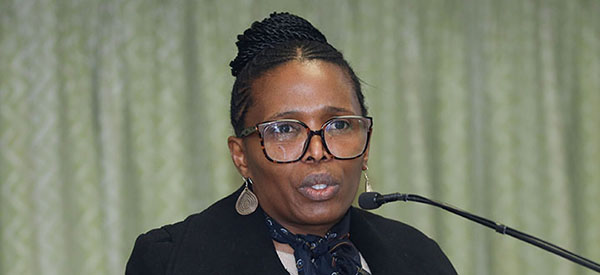
Dr Angie Magabane, Director of Internationalisation and Partnerships at Unisa
She said that this definition makes a clarion call for South Africans to ask ethical and political questions about why, in whose name, for whose benefit and to what extent South African universities should internationalise. Significantly, in the context of the African continent, it raises the question of how internationalisation engagements should be navigated in the diplomatic arena.
Continuing, Magabane cited Corneliu Bola and Markus Kornprobst, who assert that "diplomacy cannot be understood without taking seriously the role of communication as an ontological anchor of diplomatic interaction". She said that this, in essence, signals that diplomacy is the art of communication, be it in politics, science, academia and many more spaces. This definition, therefore, is of chief importance for women to engage in diplomatic dialogue, not to add numbers but to add profound impact in diplomatic dialogue.
Concluding, Magabane cautioned that the decolonisation of women in the diplomatic space is a critical step towards creating more inclusive and equitable governance. Inclusivity of women in diplomacy is an important move to recognise the marginalised voice of women in Africa and globally.
* By Tshediso Madiseng and William Thubakgale Department of Institutional Advancement
** Photography by the Unisa Multimedia Centre
Publish date: 2025-08-11 00:00:00.0


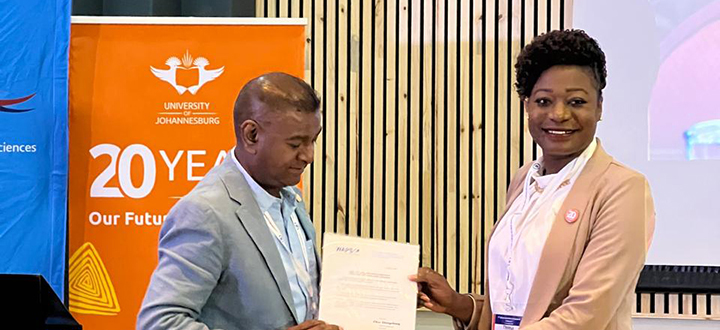 Unisa co-hosts major operations management conference
Unisa co-hosts major operations management conference
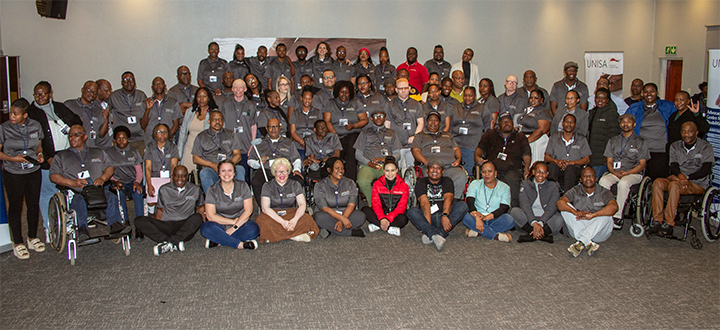 Strengthening disability-inclusive practices across higher education
Strengthening disability-inclusive practices across higher education
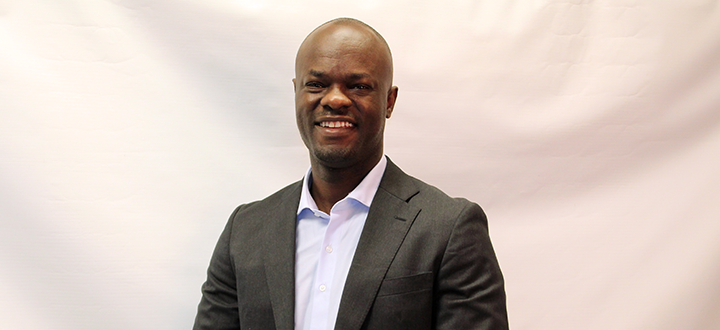 Unisa astrophysicist receives prestigious Royal Society award
Unisa astrophysicist receives prestigious Royal Society award
 Unisa's eminent women academics recognised for science excellence
Unisa's eminent women academics recognised for science excellence
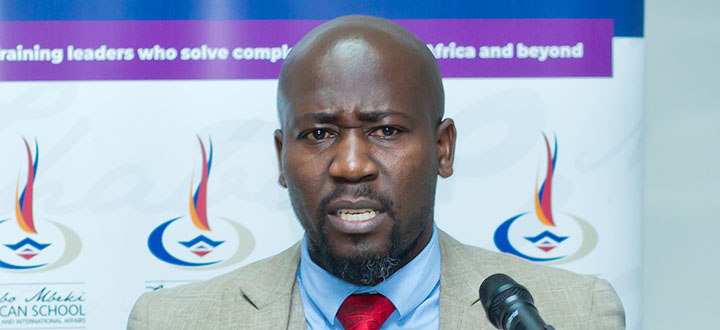 Illicit trade in Africa’s natural resources: Experts sound the alarm at Unisa seminar
Illicit trade in Africa’s natural resources: Experts sound the alarm at Unisa seminar